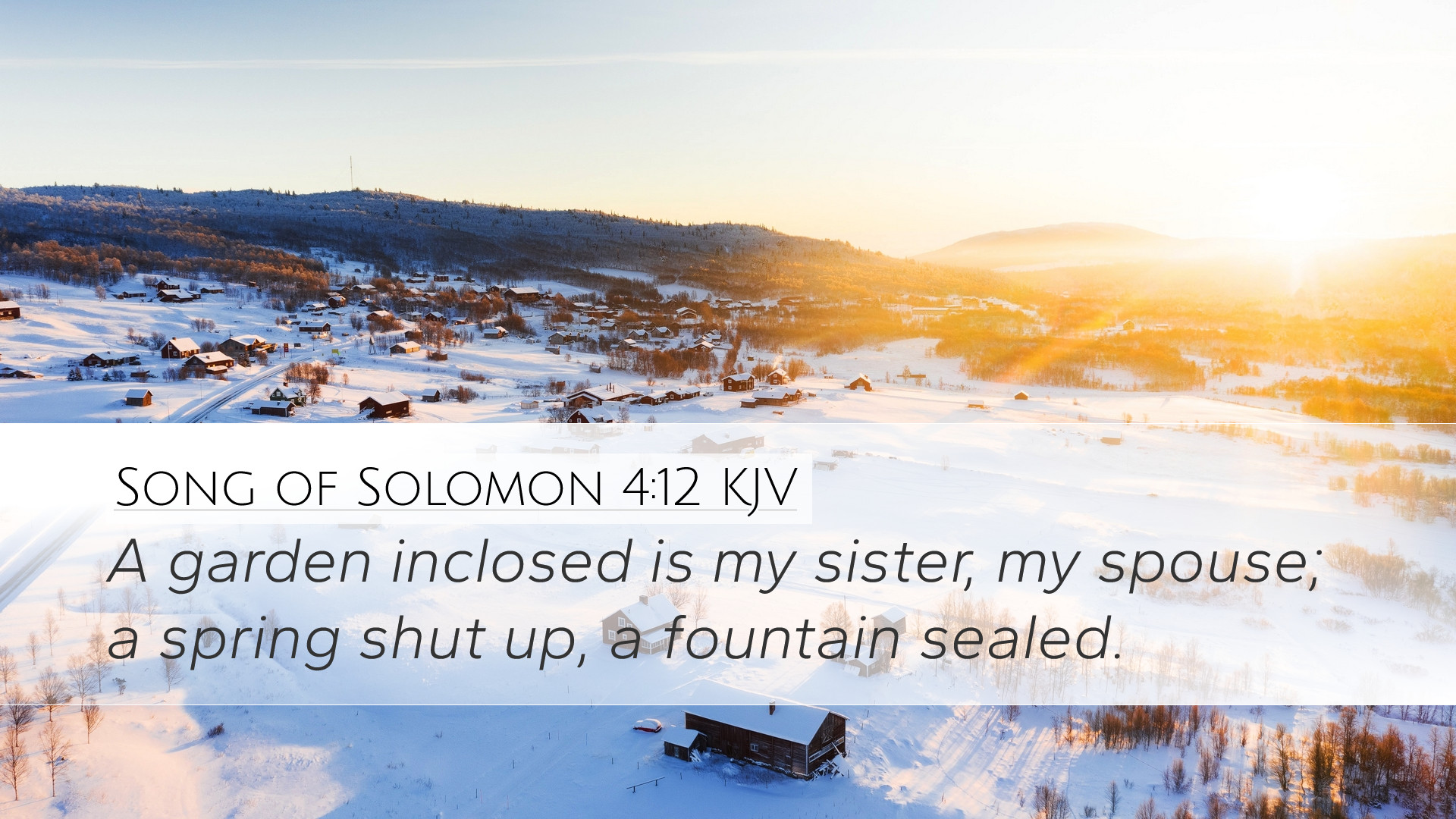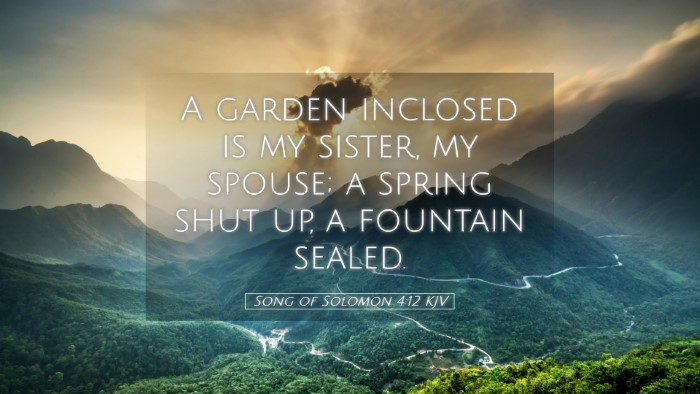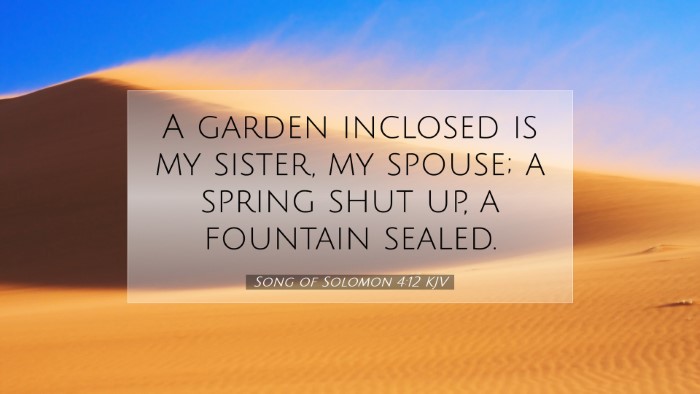Commentary on Song of Solomon 4:12
Verse Reference: Song of Solomon 4:12 (ESV) - "A garden locked is my sister, my bride, a spring locked, a fountain sealed."
Introduction
The Song of Solomon, often regarded as one of the most poetic texts in the Scripture, embodies the beauty and complexity of romantic love. In this verse, we encounter rich metaphors that reflect both intimacy and protection in the relationship between the beloved (the bride) and the lover (the bridegroom). This commentary will draw insights from notable public domain sources, including William Henry, Albert Barnes, and Adam Clarke.
Verse Breakdown
In understanding this verse, it is crucial to analyze three primary elements: the garden, the spring, and the sealed nature of these entities.
1. The Garden Locked
The metaphor of a "garden locked" conveys the idea of exclusivity and preservation. As Matthew Henry observes, the garden symbolizes the bride’s virtue and purity, implying that she is protected from outside influences. The locking suggests a sacredness, where her love is reserved solely for her beloved.
Albert Barnes elaborates that a garden is cultivated and cherished, reflecting the bride's preparation and stewardship of her love. This depiction urges the reader to see the importance of nurturing personal relationships, emphasizing that love flourishes in a secure environment.
2. The Spring Locked
The metaphor of a "spring locked" adds another layer of meaning. Springs represent the source of life and refreshment. In the context of romantic love, Adam Clarke suggests that the spring symbolizes the inner life and emotions of the bride, which are not freely shared with everyone. It indicates the depth of her feelings and the richness of her character that remain protected, waiting to be unveiled to her beloved only.
Barnes draws attention to the essential quality of water in life—its necessity for growth and vitality. The locked spring indicates that while her love is precious and life-giving, it is also safeguarded, highlighting the selective nature of affection and devotion.
3. The Fountain Sealed
The final metaphor, "fountain sealed," reinforces the themes of preservation and sacredness. A sealed fountain depicts an untouched source — a metaphor for innate worth and the bride’s commitment to purity. Clark points out that sealing also signifies a covenant, indicating that such love is protected by divine authority and should be approached with reverence.
Matthew Henry emphasizes that the sealing reflects trust and fidelity in love, wherein both partners are expected to honor their commitments and protect each other's integrity. This calls upon contemporary readers to value and safeguard their commitments in relationships, ensuring that love is both nourishing and protected.
Theological Implications
This verse is not only a celebration of romantic love but also a reflection of God’s love for His people. The locked garden, spring, and fountain can symbolize the relationship between Christ and the Church, where the intimacy is profound yet sacred. Scholars like Barnes assert that the metaphors invite believers into a deeper realization of the covenant relationship established through Christ.
- Secured Relationship: The secured status of the garden and fountain reflects the essence of divine boundaries that nurture spiritual growth.
- Intimacy and Protection: In relationships, just as in our relationship with God, there must be an element of protection that allows for vulnerability without fear of exploitation.
- Invitation to Exploration: While the garden and spring are locked, there’s an invitation to explore and discover love deeply and meaningfully.
Application for Pastors and Leaders
This verse provides a rich foundation for pastoral care and counseling regarding relationships. It emphasizes the importance of nurturing an environment where love can grow safely. Leaders can encourage couples to create 'gardens' within their relationships—spaces characterized by trust, respect, and development.
- Encourage Vulnerability: Discernment in vulnerability should be taught, stressing the balance between sharing and protecting one's heart.
- Foster Intentionality: Relationships should be cultivated with intention, much like a garden requires tending to thrive.
- Teach Covenant Love: The idea of ‘sealing’ should be incorporated into teachings about commitment in marriage and relationships.
Conclusion
Song of Solomon 4:12 serves as a profound reminder of the sanctity and complexity of romantic love. Through the metaphors of a locked garden, spring, and sealed fountain, we understand the value of protection, intimacy, and purity in love. This insight calls for both personal reflection and communal teaching on the depth of relationships we cultivate and cherish. As believers, understanding our relationship with God through Christ can further enrich our understanding and practice of love in all its forms.


